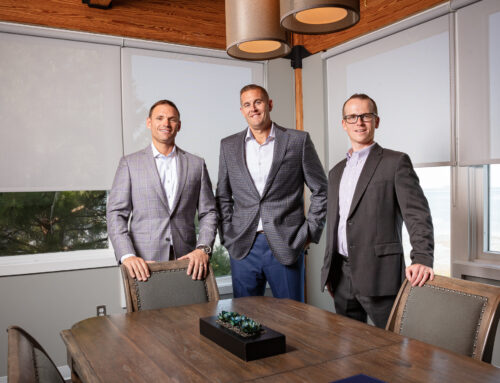
If you’ve followed markets or financial news, especially in the past few years, you may have come across the term “fear of missing out,” commonly abbreviated to FOMO. When markets keep going up, FOMO can start to creep in. It can start to feel like you’re leaving gains on the table by not rebalancing your portfolio to include the ultra-high growth assets that saw big jumps. The desire to get as much as you can from your assets is normal, but if you let it influence your decisions, you could end up risking more than you can afford. In the event of pullbacks, you may not have the time needed to benefit from a rebound.
The age-old saying, “past performance doesn’t indicate future results,” is all too true. Especially now, when we’ve seen the years of historic market gains seemingly come to an end, it comes as a reminder that markets don’t always go up, and the value of protection and safety in your retirement investments is of the utmost importance.
How To Avoid The Fear Of Missing Out
FOMO is a mindset that’s informed by emotion, so it’s important to keep your impulses in check and avoid jumping at a hot stock tip or rebalancing your portfolio to make a bet on an asset you don’t fully understand. Take the time to assess your risk tolerance and construct a plan to avoid letting FOMO dictate your investment strategy. It’s okay to have risk exposure in your portfolio; the question is around how much are you able to risk for the potential of large gains?
To mitigate the effects of FOMO on your retirement portfolio, make sure your portfolio is properly diversified based on your risk tolerance. Portfolio diversity can be a key to achieving a balance between growth and safety.
How Does Portfolio Diversity Work?
Essentially, portfolio diversity refers to a balance between high-risk and low-risk assets across sectors and asset classes. For example, a retiree may allocate a portion of their portfolio to assets to high-growth technology stocks, while another portion of their portfolio is allocated to consumer staples stocks that pay dividends. You may also want to diversify across asset classes such as real estate or bonds. The more you diversify, the more protected you become against a downturn in the market or in one sector. You also don’t have to choose one or the other, which makes it a good way to address FOMO, given that you can still allocate a portion of your portfolio to risk-tolerant assets.
There are plenty of ways to address FOMO, and it’s encouraged to talk about how to avoid it with a financial professional. We focus on working with you to understand your unique financial situation and goals and turn that into an actionable strategy that can help you achieve the retirement you want. Talk to us today for a complimentary review to get started.
The content presented is for informational purposes only and is not intended as offering financial, tax, or legal advice, and should not be considered a solicitation for the purchase or sale of any security. Some of the informational content presented was prepared and provided by Lone Beacon Media, LLC dba Lone Beacon, while other content presented may be from outside sources believed to be providing accurate information. Regardless of source no representations or warranties as to the completeness or accuracy of any information presented is implied. Lone Beacon Media, LLC is not affiliated with the Advisor, Advisor’s RIA, Broker-Dealer, or any state or SEC registered investment advisory firm. Before making any decisions you should consult a tax or legal professional to discuss your personal situation.
Investment Advisory Services are offered through SHP Wealth Management LLC., an SEC registered investment advisor. Insurance sales are offered through SHP Financial, LLC. These are separate entities, Matthew Chapman Peck, CFP®, CIMA®, Derek Louis Gregoire, and Keith Winslow Ellis Jr. are independent licensed insurance agents, and Owners/Partners of an insurance agency, SHP Financial, LLC.. In addition, other supervised persons of SHP Wealth Management, LLC. are independent licensed insurance agents of SHP Financial, LLC. No statements made shall constitute tax, legal or accounting advice. You should consult your own legal or tax professional before investing. Both SHP Wealth Management, LLC. and SHP Financial, LLC. will offer clients advice and/or products from each entity. No client is under any obligation to purchase any insurance product.





